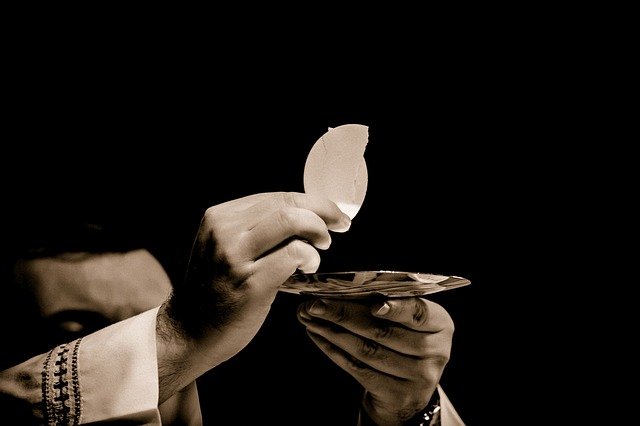Fr Paolo Consonni, MCCJ
In this sluggish economy, when facing inflation, reduced incomes and growing unemployment, nothing can be taken for granted. Maintaining an apartment, a steady salary and good medical insurance have become unaffordable for many. Nowadays we are all learning to cherish the material thing we possess. We earned them with our hard work, but at the same time we feel blessed to have them to enjoy.
In our faith-life, the “spiritual” is what matters most. We also assume that “spiritual” is the opposite of “material”, probably because in the past decades we have been overexposed to materialism which denies anything spiritual. We thus think that the spiritual has to do exclusively with the “immaterial”: inner feelings, holy thoughts, mental images or high ideals… these seem to be much more important than the down-to-earth components of our bodies and other material realities. Yet, most of the time it is through material things that we experience God’s spiritual graces.
In today’s Gospel (Luke 9:11-17), we see the disciples also dealing with a tight budget. Nevertheless, five loaves of bread and two fish, put in the hands of Jesus and blessed, broken and shared, miraculously became the sign of the abundance of God’s Kingdom and the prefiguration of the Eucharist. The bread and wine used in the Last Supper and the celebration of the Eucharist are also blessed, broken and shared to become the sacrament of Christ’s presence. The water, the oil, the words and the gestures (like the imposition of the hands), even concrete persons (in the case of the sacrament of Holy Orders) – all these concrete realities constitute the “matter” which is essential for the celebration of all the sacraments, “signs and instruments by which the Holy Spirit spreads the grace of Christ the head throughout the Church which is his Body” (CCC 774).
What makes the difference is the action of the Spirit, which is at the heart of each sacramental celebration, especially the Eucharist. There, the celebrant pronounces the Epiclesis (a Greek word meaning “invocation upon”), the intercession to ask the Father “to send the Holy Spirit, the Sanctifier, so that the offerings may become the body and blood of Christ and that the faithful by receiving them, may themselves become a living offering to God” (CCC 1105).
Our sacramental experience influences how we Catholics see the material world. We can say that something is truly “spiritual” when it is permeated by the Holy Spirit and helpful in opening ourselves to God. Spiritual is anything that is instrumental in transforming us to become more Christ-like persons. Therefore, material things can indeed become spiritual.
In the case of the Eucharist, another layer of meaning is present. The bread and wine are not only “fruits of the earth” and gifts from the Creator, but also the “work of our hands.” The grains of wheat must be planted, harvested, ground and baked to become bread. The grapes similarly must be collected, pressed and fermented to become wine. When we present on the altar the bread and wine that will become the Body and Blood of Christ, within them we also symbolically offer to God all the human activity which is necessary for our daily life: our work, our studies, our relationships, the efforts we put to sustain our families and develop our society, and even the sufferings we bear in our bodies when we are sick. All of these “material” aspects of our life, together with bread and wine, are presented to God to be permeated by the Holy Spirit who transforms them into important aspects of our spiritual journey and of our participation in God’s redeeming plan for the world.
Even the collection which takes place during the Eucharist is not simply a “mundane” contribution for the expenses of the parish. From the very beginning, Christians have brought, along with the bread and wine for the Eucharist, gifts to share with those in need to imitate Christ who shared His own life with us (see CCC 1351). The sharing of “the fruits of our hands,” in the Eucharist and outside of it, is a means by which we move toward our real destiny, which is our final communion with God. Christ’s mission to transform the world into God’s Kingdom requires our active participation: “You give them something to eat” (v.13), said Jesus in today’s Gospel before multiplying the five loaves and the fish.
It’s beautiful to know that all aspects of our life, including the challenges we face to stay economically afloat through our daily toiling, are not overlooked by God and can be brought into our liturgy. May the Holy Spirit help us to see in everything, even in our work and in our possessions, a deeper level of meaning: a sign of God’s presence and love, to be shared with the world.
(Image: RobertCheaib at Pixabay.com)


 Follow
Follow


